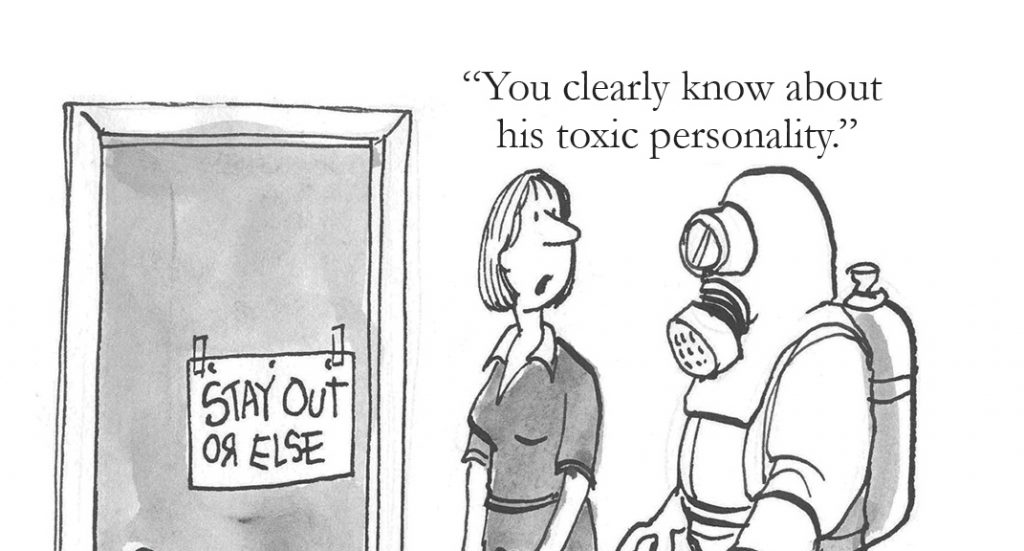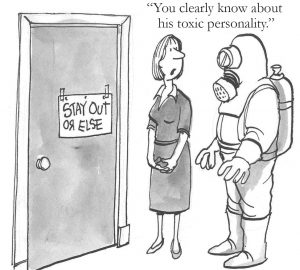
Why can’t we all just NOT get along?
[vc_row][vc_column][vc_column_text] From my experience, one of the most challenging parts of building an entrepreneurial community is dealing with people who dislike change, block progress, and fear anything new.
From my experience, one of the most challenging parts of building an entrepreneurial community is dealing with people who dislike change, block progress, and fear anything new.
Learning how to get along with these folks will make you and your community stronger, but it’s not easy. I’m beginning to wonder if the answer to getting along is learning how to not get along. Before this concept makes you dizzy, let’s bring some context to the folks we’re dealing with.
Naysayers have been around since the beginning of time. Imagine the giggling through chattering teeth when the first caveman picked up two sticks and proclaimed the ability to warm his community with fire. “Bwahaha! Look at Og! This will never work!”
I recently heard a city official refer to these folks as CAVE people: Citizens Against Virtually Everything. How appropriate. Author Jane Jacobs called them squelchers: “Squelchers are control freaks who think they know what’s best for their city or region, even as their leadership, or lack thereof, causes a hemorrhage of bright, talented and creative people. Squelchers are the kind of leaders that use the word ‘no’ a lot. They constantly put roadblocks in the way of community energy and initiatives.”
From my experience, here’s what I’ve learned about squelchers:
- They are different from people you simply disagree with or push you to think bigger. These folks make you better and are worth an investment of time.
- Squelchers are dead set against change and take every opportunity to stir the pot and keep you in your place. These folks make you nuts and like to waste your time.
- Squelchers do not discriminate — they can be found in rural and urban communities, as well as places with great success or great challenges.
- They cause havoc in your communities, create dissention in your boards and are poison on your staff.
- Ignoring squelchers carries risk. They don’t agree with what you’re doing, but are often offended and vocal about being left out.
- Squelchers jump on the first rumblings of failure or the smallest transgressions, telling their stories to anyone who will listen.
- At their worse, they use their power and voices to slow or stop your progress. At their best, they talk behind your back, take your time and deplete your energy.
I’ve tried the following in my best efforts to get along:
- Included squelchers in meetings, events and conversations.
- Listened, tried to understand their story and compromised.
- Understood that dissension often comes from the fear of loss.
- Tried to understand what they would lose if we succeeded.
- Tried to make them happy.
- Rinsed and repeated — a lot.
Sometimes I was successful, but more often I was not. There were times I was annoyed and frustrated, and there were times it just made me sad. If this sounds familiar and you have tried patience, empathy, communication, and persuasive arguing — and your squelcher is still not budging — then maybe it’s time to learn how to not get along.
I dream of a community where healthy arguments abound and it is acceptable to acknowledge we are not going to get along. We don’t agree, probably never will, don’t like one another very much, and we’re okay with that. And even though we’re not likely to hug anytime soon, we’ll respect each other, pledge to not purposely undermine one another’s efforts, gossip behind backs or run to the press or those in authority with the slightest altercation or misstep.
Dealing with squelchers is one of the most challenging things we do in our communities. And if we want progress, maybe it’s time to try something that flies in the face of tradition — like learning how to not get along. Just imagine saying this about your most adamant squelcher. “Oh yeah, I know him (or her). We don’t agree on anything, but we do it really well!”
Is this pure fantasy or is learning how to not get along possible? How would you do this in your community? This is a tough subject, I have few answers, and your opinions matter.
As I wrap this up, I have a desire to sing “Let It Go” from “Frozen.” And speaking of frozen, “Thanks Og! I really think the whole fire thing is starting to catch on.”
Copyright © 2017 by Edward Lowe Foundation
[/vc_column_text][/vc_column][/vc_row][vc_row][vc_column][/vc_column][/vc_row][vc_row][vc_column][/vc_column][/vc_row][vc_row][vc_column][/vc_column][/vc_row]